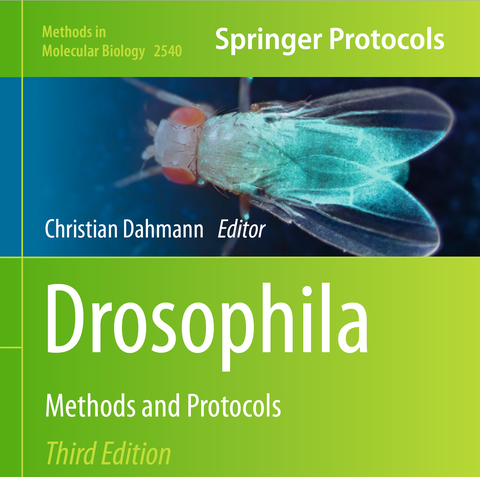31.08.2022
Die dritte Auflage des Buches “Drosophila: Methods and Protocols” ist erschienen.
The fruit fly Drosophila melanogaster is a long-standing model organism in biomedical research. Research using Drosophila continuous to provide valuable contributions to our understanding of the genetics, development, physiology, and behavior of multi-cellular organisms and of human diseases. Scientific advance is also driven by technical and methodological inventions. This third edition of “Drosophila: Methods and Protocols” covers some of the recent methodological improvements and inventions that drosophilists have made in recent years. The book starts with a description of FlyBase, a comprehensive database of Drosophila genes and genomes, methods to experimentally achieve precise spatiotemporal gene expression, and methods to analyze microRNA function and single-cell transcriptome data. The next five chapters describe recent CRISPR-based methods for precise genome editing, transcriptional activation and cell lineage tracing. Methods for studying protein function and for tagging proteins are then followed by protocols to control cell and tissue mechanics and to measure mechanical properties of tissues. The final chapters then detail methods to prepare, image and quantitatively analyze tissues, and to study metabolism.

